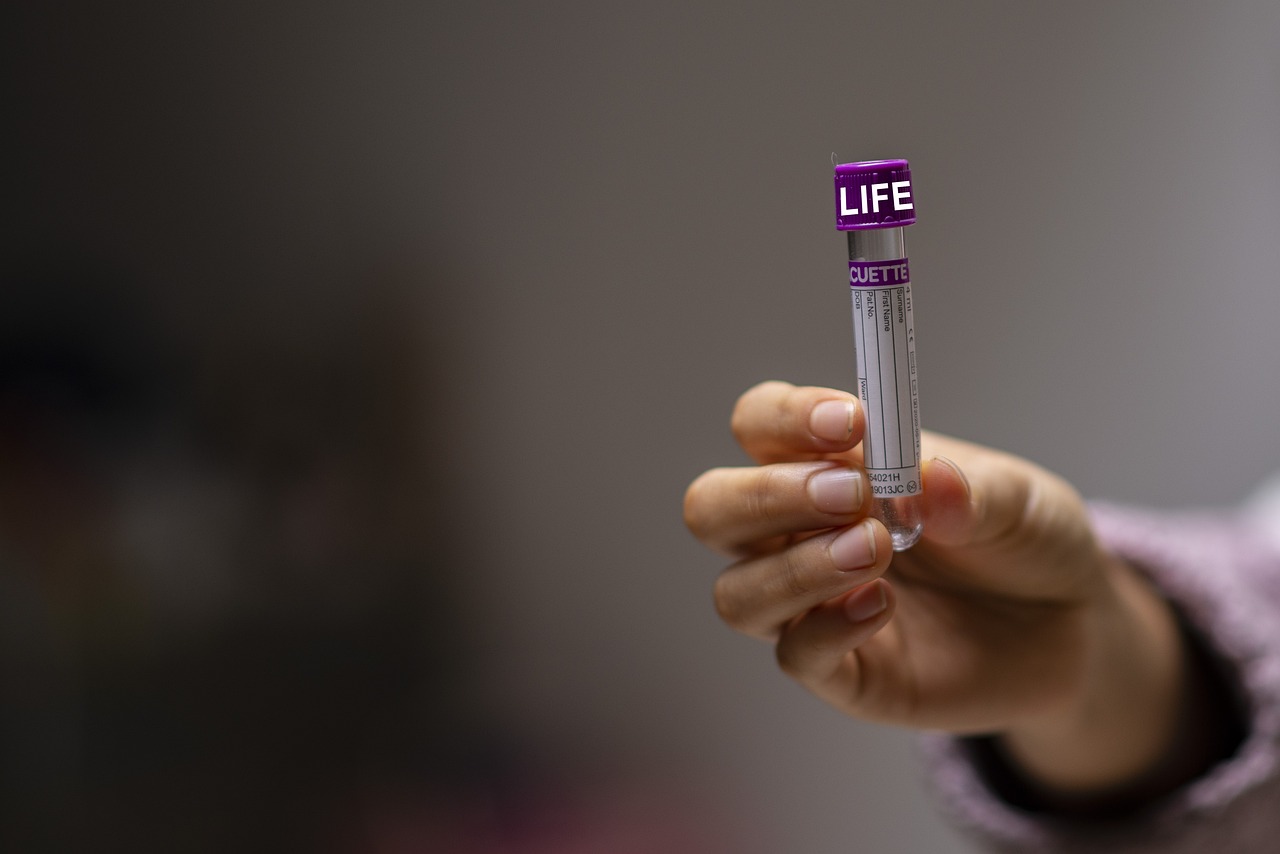Understanding the guidelines surrounding fasting blood tests is crucial for accurate results. This article explores the impact of water consumption before testing and provides essential information for patients.
A fasting blood test is a medical procedure that measures various health markers after a period of abstaining from food and drink. It is vital to understand its purpose and the preparation involved to ensure accurate results. Typically, fasting is required for a minimum of 8 to 12 hours, depending on the specific test being conducted.
Why is Fasting Required for Blood Tests? Fasting is necessary because it prevents recent food or drink intake from skewing the results. For instance, glucose levels can be significantly affected by what you consume, leading to misleading readings that could impact diagnoses and treatment plans.
Can You Drink Water Before a Fasting Blood Test? Yes, drinking water is generally allowed and even encouraged before a fasting blood test. Staying hydrated is important, as it can facilitate the blood draw process. Dehydration can make veins less visible and harder to puncture, potentially causing discomfort.
- Benefits of Hydration Before Testing: Proper hydration can enhance blood flow, making it easier for healthcare professionals to draw blood. This may also reduce discomfort during the procedure.
- How Much Water Can You Drink? While it is advisable to drink water freely, moderation is key. Excessive water intake may lead to discomfort or frequent bathroom breaks, which could be inconvenient prior to the test.
What About Other Beverages? It is critical to avoid all other beverages, including coffee, tea, and juices, before a fasting blood test. These drinks can interfere with test results and lead to inaccuracies that could affect your health management.
When Should You Stop Drinking Water? If instructed by your healthcare provider, it may be necessary to stop drinking water a few hours before the test, especially for tests that require stricter fasting protocols. Always follow the specific guidelines provided by your healthcare professional.
Understanding Specific Test Requirements: Different blood tests may have varying requirements regarding fasting and water intake. Always consult your healthcare provider for tailored advice to ensure optimal preparation.
Common Myths About Fasting Blood Tests: There are many misconceptions surrounding fasting blood tests, including the idea that any liquid can be consumed. Clarifying these myths is essential for proper preparation and to avoid potential errors in test results.
What to Expect During a Fasting Blood Test: Knowing what to expect can alleviate anxiety. Typically, a healthcare professional will draw blood from your arm. The procedure is quick and relatively painless, often taking just a few minutes.
Post-Test Recommendations: After undergoing a fasting blood test, it’s important to hydrate and consume a balanced meal. This helps replenish nutrients and maintain energy levels following the fasting period. Consider eating foods rich in vitamins and minerals to support your recovery.
In summary, understanding the guidelines and requirements surrounding fasting blood tests, including water consumption, is essential for obtaining accurate results. By following the advice of healthcare professionals and remaining informed, patients can ensure a smooth testing experience.
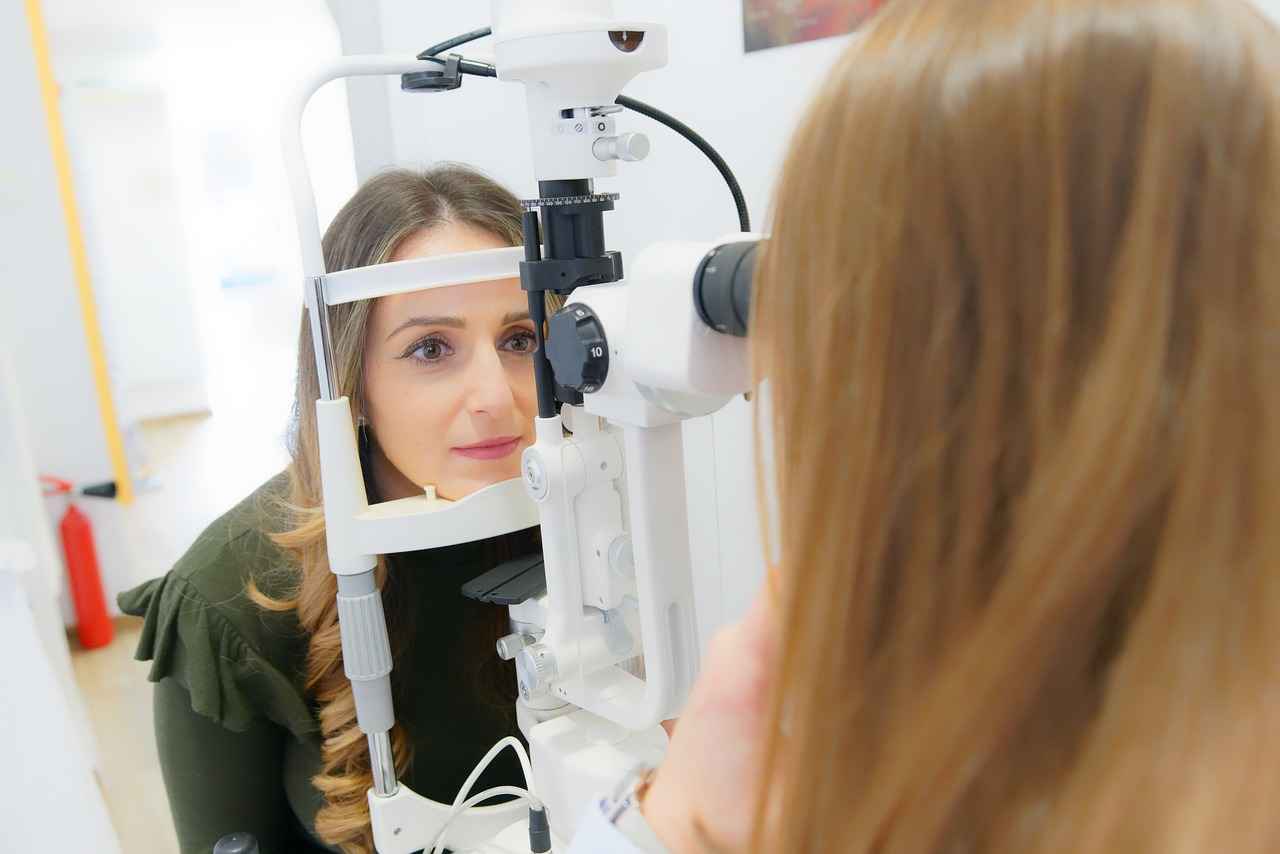
What is a Fasting Blood Test?
A fasting blood test is a diagnostic procedure that assesses various health markers after a specific period of abstaining from food and drink. This process is crucial for obtaining accurate measurements of substances in the blood, including glucose levels, cholesterol, and other vital indicators of health. Understanding the significance of this test and its preparation is essential for individuals seeking to monitor their health effectively.
Purpose of a Fasting Blood Test
The primary purpose of a fasting blood test is to provide a clear picture of how your body functions without the influence of recent meals. When you eat, your body processes food and releases substances into the bloodstream that can temporarily alter the results of certain tests. By fasting, you eliminate these variables, allowing for a more precise evaluation of your health status.
Types of Tests Involved
- Glucose Tests: These tests measure blood sugar levels to screen for diabetes or prediabetes.
- Lipid Profile: This test evaluates cholesterol levels, including LDL, HDL, and triglycerides, to assess cardiovascular health.
- Liver Function Tests: These tests help in assessing the health of your liver by measuring enzymes and proteins in the blood.
Importance of Proper Preparation
Proper preparation for a fasting blood test is crucial. Patients are typically advised to fast for at least 8 to 12 hours prior to the test. During this time, only water is usually permitted. This fasting period helps ensure that the test results are not skewed by recent dietary intake, which can provide misleading information about a person’s health.
Understanding Fasting Duration
The required fasting duration can vary depending on the specific tests being conducted. For instance, a lipid panel may require a longer fasting period compared to a glucose test. It is vital for patients to follow the specific instructions given by their healthcare provider to ensure the accuracy of the results.
What Happens During the Test?
During the fasting blood test, a healthcare professional will draw blood from a vein, typically located in the arm. The procedure is relatively quick and involves minimal discomfort. Patients may experience a slight pinch when the needle is inserted, but this is usually brief. After the blood sample is collected, it is sent to a laboratory for analysis.
Post-Test Considerations
After the blood test, patients are encouraged to hydrate and consume a balanced meal. This helps replenish nutrients and stabilize energy levels after the fasting period. It is also essential to discuss the results with a healthcare provider to understand what the findings mean for your health.
Consulting with Healthcare Professionals
Before undergoing a fasting blood test, it is advisable to consult with healthcare professionals regarding any medications or conditions that may affect the test results. Certain medications can influence blood sugar and cholesterol levels, so it is crucial to provide your healthcare provider with a complete list of all medications and supplements you are taking.
In summary, a fasting blood test is a vital tool for assessing various health markers. Understanding its purpose, preparation requirements, and what to expect can significantly enhance the accuracy of the results and contribute to better health management.
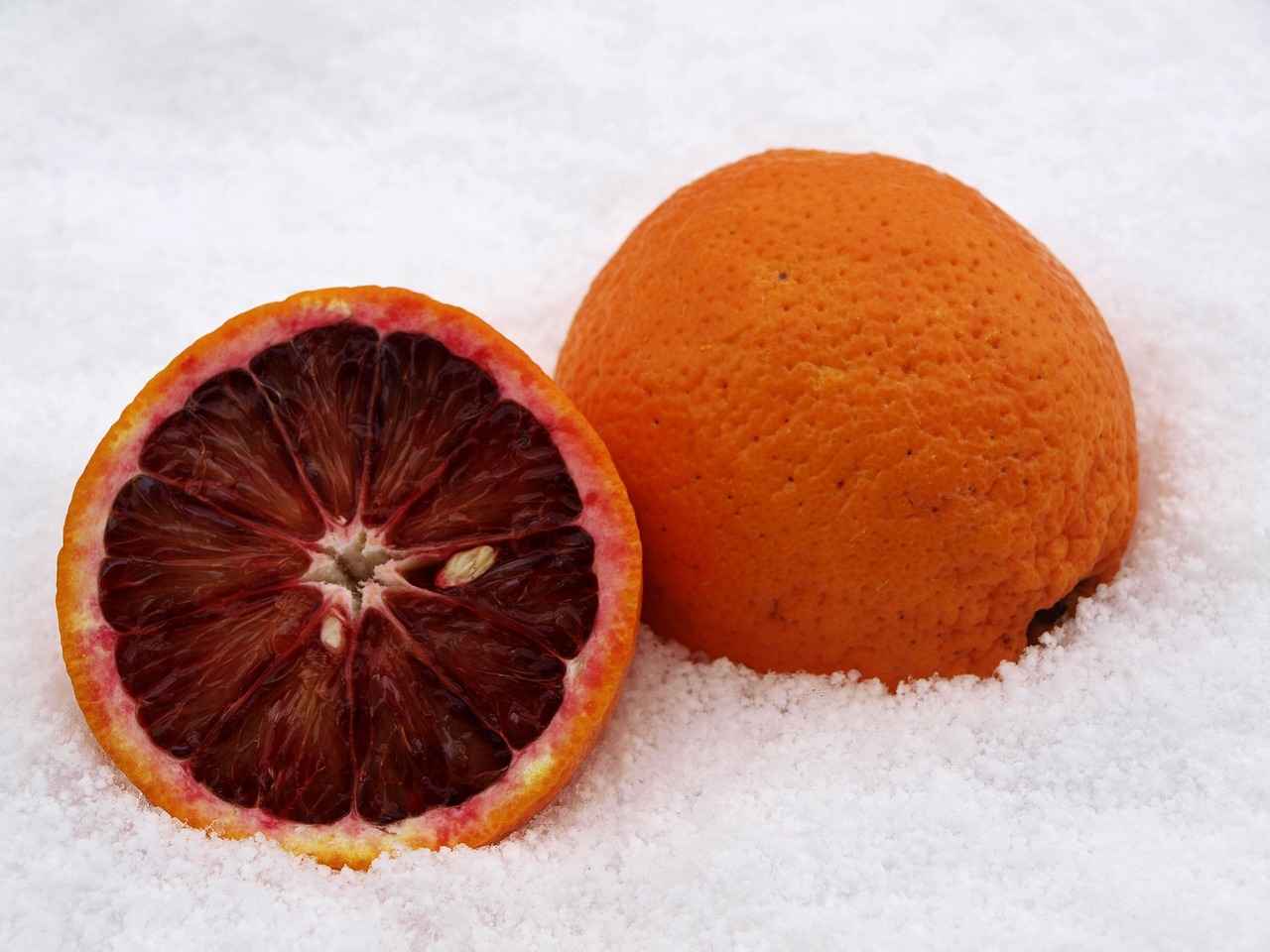
Why is Fasting Required for Blood Tests?
Fasting is a critical component in the preparation for blood tests, as it significantly impacts the accuracy of the results. Understanding the reasons behind fasting requirements can help patients comply with testing protocols and ensure that their health markers are accurately assessed. In this section, we delve into why fasting is essential before undergoing blood tests.
A fasting blood test is designed to measure various health indicators, including glucose, cholesterol, and other important markers. When you eat or drink, the substances in your food can temporarily alter these levels, leading to misleading results. This is why fasting is often required for specific tests, allowing healthcare professionals to obtain a clearer picture of your health.
One of the primary reasons fasting is mandated is to avoid the influence of recent food intake on blood test results. For instance, consuming carbohydrates can spike blood sugar levels, while fatty foods can elevate cholesterol readings. By fasting, patients can ensure that their blood samples reflect their baseline health status rather than fluctuations caused by recent meals.
Additionally, fasting can help standardize test conditions. When patients fast, it minimizes variability in results due to different dietary habits, making it easier for healthcare providers to compare results across different individuals. This standardization is crucial for diagnosing conditions such as diabetes and assessing heart health accurately.
Moreover, certain tests require a prolonged fasting period to achieve optimal results. For example, tests measuring lipid profiles often require fasting for at least 9-12 hours. This period allows the body to process and clear fats from the bloodstream, providing a more accurate assessment of cholesterol levels. Without fasting, these tests may yield artificially high readings, leading to unnecessary interventions or misdiagnoses.
It’s also important to note that fasting does not mean complete deprivation of fluids. In fact, drinking water is typically encouraged during the fasting period. Staying hydrated can aid in the blood draw process, making it easier for healthcare providers to obtain samples and reducing discomfort for patients. However, all other beverages, including coffee and juices, should be avoided, as they can interfere with test accuracy.
- Glucose Testing: Fasting is crucial for accurate glucose measurement, especially for diabetes screening.
- Lipid Panels: These tests assess cholesterol levels, which can be significantly affected by recent food intake.
- Comprehensive Metabolic Panel: This test evaluates kidney and liver function, requiring fasting for precise results.
In conclusion, fasting before blood tests is essential for obtaining reliable and accurate health information. By adhering to fasting guidelines, patients can help ensure that their test results reflect their true health status, enabling healthcare professionals to make informed decisions regarding diagnosis and treatment. Always consult your healthcare provider for specific instructions regarding fasting requirements for your blood tests, as individual needs may vary.
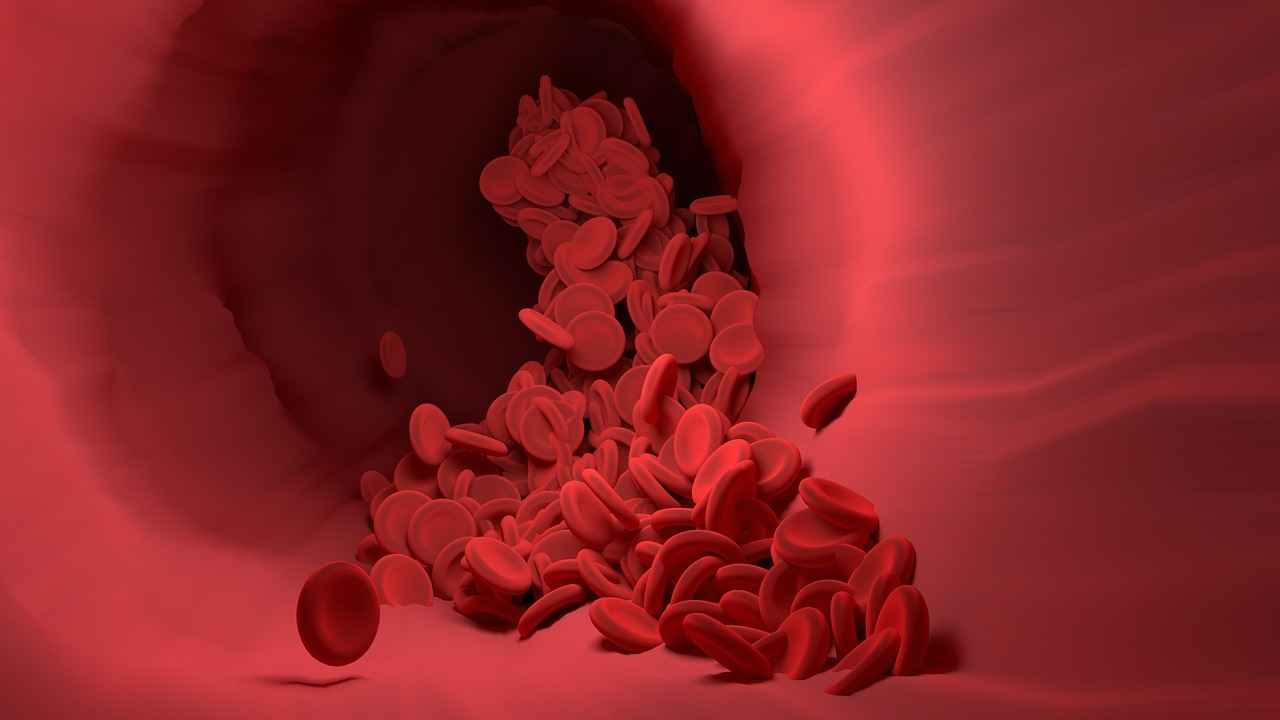
Can You Drink Water Before a Fasting Blood Test?
When preparing for a fasting blood test, many patients wonder about the guidelines surrounding water consumption. Understanding whether you can drink water before the test is essential for ensuring accurate results and a smooth experience.
A fasting blood test typically requires you to abstain from eating or drinking anything other than water for a specified period, usually between 8 to 12 hours. This fasting period is crucial as it helps to eliminate any influences that food or drink might have on the test results, particularly for markers like glucose and cholesterol.
Drinking Water: A Common Recommendation
In most cases, drinking water is not only allowed but also encouraged before a fasting blood test. Staying hydrated plays a vital role in the blood draw process. Adequate hydration can improve blood flow, making it easier for healthcare professionals to obtain a sample. This can lead to a more comfortable experience and may reduce the likelihood of multiple attempts to find a vein.
Benefits of Hydration Before Testing
- Improved Blood Flow: Hydrated veins are fuller and easier to access, which can facilitate a quicker blood draw.
- Reduced Discomfort: Being well-hydrated can minimize the discomfort associated with needle insertion.
- Enhanced Accuracy: Proper hydration can help ensure that the sample collected is representative of your body’s state, contributing to more accurate test results.
How Much Water Can You Drink?
While there is no strict limit on the amount of water you can consume before a fasting blood test, moderation is essential. It is advisable to drink enough water to stay hydrated but avoid excessive amounts that might lead to discomfort or frequent bathroom breaks. A good rule of thumb is to drink small amounts of water leading up to the test.
What About Other Beverages?
It is crucial to note that while water is acceptable, all other beverages—including coffee, tea, and juice—should be avoided. These drinks can introduce substances that may interfere with test results, leading to inaccurate readings. Stick to plain water to ensure the integrity of your test results.
When Should You Stop Drinking Water?
Although water is generally permitted, there may be specific instructions from your healthcare provider regarding when to stop drinking. For certain tests, especially those that require stricter fasting protocols, you may need to cease water intake a few hours before the test. Always follow your provider’s guidelines to ensure optimal results.
Understanding Specific Test Requirements
Different blood tests may have varying requirements regarding fasting and water intake. For instance, tests assessing liver function might have different protocols compared to those measuring glucose levels. Always consult with your healthcare provider for tailored advice based on the specific tests you are undergoing.
Common Myths About Fasting Blood Tests
There are several misconceptions about fasting blood tests, including the belief that any liquid can be consumed. Clarifying these myths is essential for proper preparation. Remember, only water is acceptable, and any other liquids can compromise the accuracy of your results.
What to Expect During a Fasting Blood Test
Knowing what to expect can alleviate anxiety associated with blood tests. Typically, a healthcare professional will draw blood from your arm, a process that is usually quick and relatively painless. Being well-hydrated can make this process smoother.
Post-Test Recommendations
After completing the blood test, it’s important to rehydrate and consume a balanced meal. This helps replenish nutrients and restore energy levels following the fasting period. Always listen to your body and follow any additional advice provided by your healthcare team.
Benefits of Hydration Before Testing
Staying hydrated before a blood test is often overlooked, yet it plays a significant role in ensuring a smooth and successful testing experience. Proper hydration can greatly enhance blood flow, which is crucial during the blood draw process. Many patients may not realize that being well-hydrated can lead to reduced discomfort during the draw and can improve the accuracy of test results.
When you drink water, it helps to dilute your blood, which can make it easier for healthcare professionals to locate veins. This is especially beneficial for individuals with smaller veins or those who typically experience difficulty during blood draws. Furthermore, adequate hydration can help prevent the blood from becoming too viscous, which can sometimes complicate the process and lead to multiple attempts at drawing blood.
In addition to easing the physical aspects of the draw, staying hydrated can also have psychological benefits. Many patients experience anxiety at the thought of needles and blood tests. Knowing that you have taken steps to prepare, such as drinking enough water, can help alleviate some of this anxiety. Feeling prepared can lead to a more relaxed state, which may further enhance the overall experience.
Moreover, hydration plays a crucial role in maintaining the integrity of test results. Dehydration can lead to concentrated blood samples, which may skew results and lead to false readings. For instance, dehydration can artificially elevate levels of certain substances in the blood, such as creatinine and electrolytes, which are critical markers in assessing kidney function and overall health. Thus, ensuring you are well-hydrated can contribute to more reliable and accurate results, allowing healthcare providers to make better-informed decisions regarding your health.
It’s important to note that while drinking water is beneficial, moderation is key. Excessive water intake right before the test can lead to discomfort or frequent bathroom breaks, which can be counterproductive. Typically, it is advised to drink a glass or two of water in the hours leading up to your appointment, but always follow specific guidelines provided by your healthcare provider.
In summary, the benefits of hydration before a blood test cannot be overstated. From improving blood flow and reducing discomfort during the draw to enhancing the accuracy of test results, staying hydrated is a simple yet effective way to prepare for your testing. Always consult with your healthcare provider for personalized advice on how much water to consume before your test, and remember that your comfort and health are paramount.
How Much Water Can You Drink?
When preparing for a fasting blood test, understanding the guidelines regarding water consumption is essential for optimal results. While it is generally recommended to drink water freely to maintain hydration, it is crucial to practice moderation. Excessive water intake can lead to discomfort and frequent bathroom visits, which may distract from the purpose of the test.
Hydration plays a significant role in the blood testing process. Drinking an appropriate amount of water can enhance blood flow, making it easier for healthcare professionals to draw blood. However, it is important to know how much water is considered safe and beneficial before the test.
Typically, a good rule of thumb is to consume around 8 to 16 ounces of water in the hours leading up to your appointment. This amount is usually sufficient to keep you hydrated without overwhelming your bladder. It’s advisable to start drinking water gradually, rather than consuming a large quantity all at once. This approach helps avoid the potential discomfort of a full bladder during the blood draw.
Moreover, it is essential to listen to your body. If you feel thirsty, it is a signal that your body requires hydration. However, if you find yourself needing to urinate frequently, it may be a sign to cut back on your water intake. Balance is key; you want to be hydrated enough to facilitate the blood draw but not so much that you experience discomfort.
In addition to the volume of water, consider the timing of your intake. It is generally recommended to stop drinking water about one to two hours before the test, especially if your healthcare provider has given specific instructions. This timeframe allows your body to process the water without causing unnecessary urgency during the test.
It’s also important to note that while water is acceptable, other beverages such as coffee, tea, or juices should be avoided. These liquids can alter your blood chemistry and lead to inaccurate results, which is why sticking to plain water is the best option before a fasting blood test.
In summary, while staying hydrated is crucial, moderation is equally important. Aim for a reasonable amount of water, listen to your body’s cues, and adhere to any specific guidelines provided by your healthcare provider. By doing so, you can help ensure a smooth testing experience and accurate results.
For those who may have additional questions or concerns about water intake before a fasting blood test, it is always best to consult with your healthcare provider. They can provide personalized recommendations based on your health history and the specific tests being conducted.

What About Other Beverages?
When preparing for a fasting blood test, it is essential to understand the implications of consuming various beverages. While staying hydrated is important, not all drinks are created equal. Specifically, patients should avoid all other beverages such as coffee, tea, and juices, as these can significantly interfere with test results and lead to inaccurate readings.
Why Avoid Coffee and Tea?
Coffee and tea contain caffeine and other compounds that can affect metabolism and alter blood test results. For instance, caffeine can stimulate insulin production and may lead to fluctuations in glucose levels. This is particularly concerning for tests measuring blood sugar or insulin sensitivity. Additionally, the acidity in coffee and tea can impact the pH levels in your blood, which may skew results.
The Impact of Juices
Juices, even those labeled as 100% fruit juice, contain natural sugars that can elevate blood glucose levels. Consuming juice before a fasting blood test can result in misleading results, especially in tests evaluating glucose tolerance or diabetes management. It is crucial to remember that the primary goal of fasting is to obtain a baseline reading that reflects your body’s natural state, free from external influences.
Hydration and Its Importance
While avoiding other beverages is critical, drinking water is generally permitted and encouraged. Staying hydrated can facilitate the blood draw process, making it easier for healthcare professionals to locate veins. Moreover, adequate hydration can improve blood flow, reducing discomfort during the procedure.
Timing of Beverage Intake
Patients often wonder when they should stop consuming all beverages before the test. It is advisable to refrain from drinking anything other than water for at least 8 to 12 hours prior to the blood draw, depending on the specific instructions from your healthcare provider. This fasting period allows for the most accurate evaluation of your health markers.
Consulting Healthcare Providers
Always consult with your healthcare provider regarding specific fasting requirements. Different tests may have unique guidelines, and your provider can offer tailored advice based on your health status and the type of test being conducted.
Common Misconceptions
- Myth: Any liquid can be consumed before a fasting blood test.
- Fact: Only water is typically allowed to ensure accurate results.
- Myth: Drinking coffee or tea is harmless.
- Fact: These beverages can alter test outcomes due to their chemical properties.
The Bottom Line
In conclusion, while hydration is vital, it is important to adhere strictly to fasting guidelines. Avoiding all beverages except water ensures that your test results are as accurate as possible. This preparation is crucial for effective diagnosis and treatment, making your cooperation with these guidelines essential for your health journey.
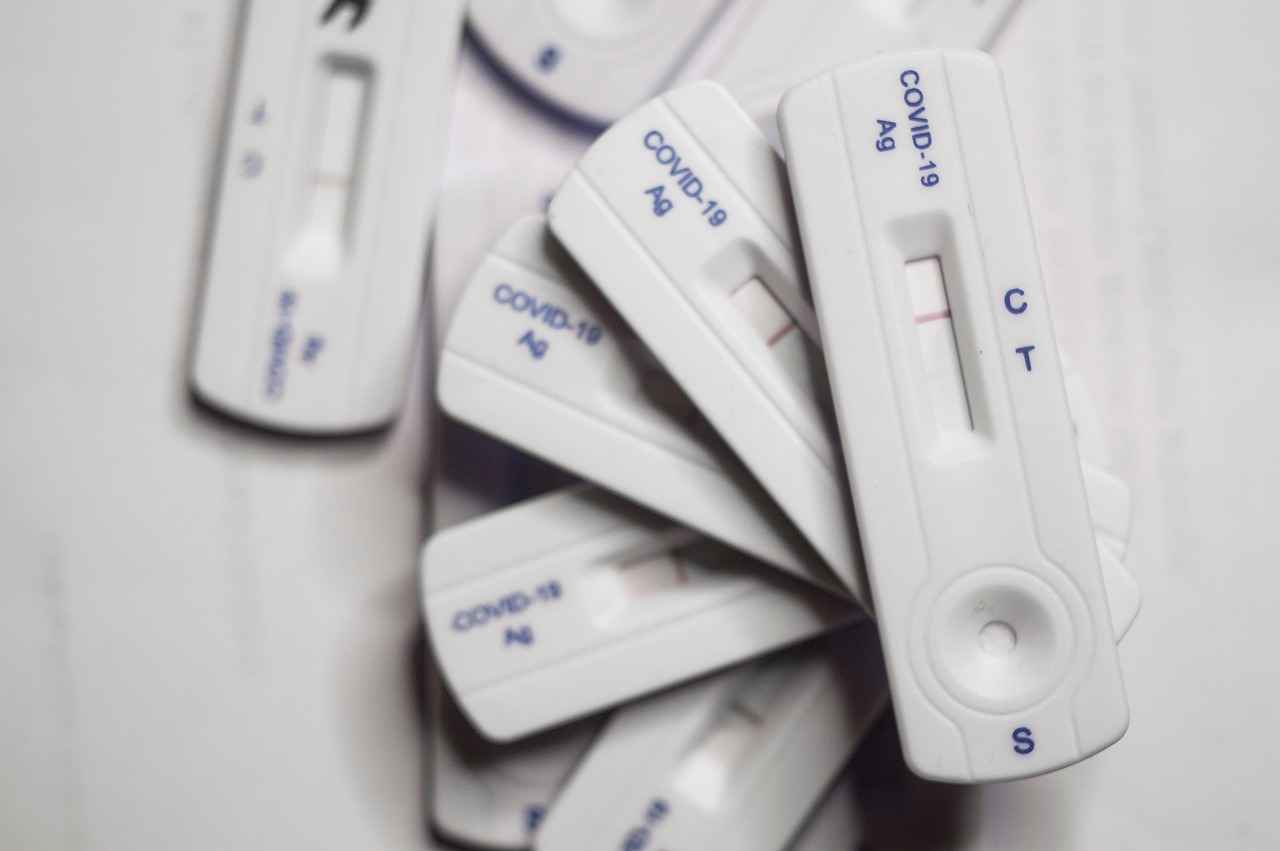
When Should You Stop Drinking Water?
When preparing for a fasting blood test, understanding the guidelines regarding water intake is essential for ensuring accurate results. While hydration is generally encouraged, specific instructions from your healthcare provider should always be followed. This article delves into the nuances of water consumption before a fasting blood test, particularly focusing on when you should stop drinking water.
Fasting blood tests are designed to measure various health markers, such as glucose and cholesterol levels, after a specific period without food or drink. This fasting period is crucial, as it helps eliminate any variables that could skew test results. While most fasting protocols allow for water consumption, there are exceptions.
It is imperative to adhere to the guidelines set forth by your healthcare provider. Some tests may require stricter fasting protocols, where even water intake might be restricted. This is particularly true for tests that measure hormone levels or certain metabolic markers, where even small amounts of water could potentially affect the results.
- Stay Hydrated: Drinking water before a blood test is generally encouraged. It helps maintain hydration, which can facilitate blood flow and make the blood draw easier.
- Moderation is Key: While hydration is important, excessive water consumption right before the test can lead to discomfort and frequent bathroom breaks, which can be inconvenient.
As a general rule, it is advisable to cease water intake a few hours before the test if instructed by your healthcare provider. This is particularly important for tests with strict fasting guidelines. For example, some providers may recommend stopping all water consumption at least two to three hours prior to the test to ensure the most accurate results.
Several factors may influence the specific recommendations regarding water intake before your test:
- Type of Test: Different blood tests have unique requirements. Always consult with your healthcare provider regarding the specific test you are undergoing.
- Personal Health Conditions: Certain health conditions may require tailored fasting protocols that include water restrictions.
- Timing of the Test: The time of day your test is scheduled can also affect when you should stop drinking water.
Before your fasting blood test, it is crucial to have a thorough discussion with your healthcare provider. They can provide personalized advice based on your health history and the specific tests being conducted. If you have any doubts or questions about water intake, don’t hesitate to ask for clarification.
In summary, while drinking water is generally permitted and even encouraged before a fasting blood test, it is essential to follow the specific instructions provided by your healthcare provider. Stopping water intake a few hours before the test may be necessary for certain tests to ensure accuracy. Always prioritize communication with your healthcare team to ensure the best possible outcomes for your health.
Understanding Specific Test Requirements
When preparing for a fasting blood test, it is essential to understand that different tests may have varying requirements. This variability can significantly impact the accuracy of your results. Therefore, it is crucial to always consult your healthcare provider for specific instructions regarding water intake and fasting periods.
Fasting blood tests are designed to measure various health markers, such as glucose and cholesterol levels, after a designated period of fasting. The primary purpose of fasting is to eliminate any influence that recent food or drink consumption may have on these markers. However, the guidelines can differ based on the type of test being conducted.
Hydration Guidelines for Different Tests
- Standard Fasting Blood Tests: Most commonly, patients are allowed to drink water during the fasting period. Water helps maintain hydration and can make the blood draw more comfortable.
- Glucose Tolerance Tests: In some cases, patients may be instructed to avoid all liquids, including water, for a specified time before the test. This is particularly true for tests assessing insulin response.
- Lipid Panels: Water is generally acceptable before lipid panels, but some healthcare providers may recommend limiting intake to avoid any potential complications.
Consulting Your Healthcare Provider
It cannot be overstated how important it is to consult your healthcare provider regarding your specific test requirements. They will provide tailored advice based on your medical history, the medications you are taking, and the type of test being performed. This ensures that you are adequately prepared, which can lead to more reliable results.
Fasting Duration and Water Intake
The duration of fasting can also impact whether or not you can drink water. For example, a standard fasting period may last from 8 to 12 hours, during which water is generally permitted. However, some tests may require a longer fasting period, during which you may need to refrain from drinking anything, including water, for a specific time frame.
Common Misunderstandings
Many patients hold misconceptions about fasting blood tests. A prevalent myth is that any liquid can be consumed during the fasting period. This is not true; only water is typically allowed. Other beverages, including coffee, tea, and juices, can interfere with test results and should be avoided unless otherwise directed by your healthcare provider.
Preparing for Your Test
To prepare effectively for your fasting blood test, follow these steps:
- Confirm Fasting Guidelines: Always check with your healthcare provider about the specific fasting requirements for your test.
- Stay Hydrated: If permitted, drink plenty of water in the hours leading up to your test to ensure proper hydration.
- Avoid Unapproved Beverages: Refrain from consuming any liquids other than water unless explicitly allowed by your healthcare provider.
By understanding the specific requirements for your fasting blood test and adhering to your healthcare provider’s instructions, you can help ensure that your test results are as accurate as possible. Always prioritize clear communication with your healthcare provider to clarify any uncertainties regarding fasting protocols.

Common Myths About Fasting Blood Tests
Fasting blood tests are essential tools in diagnosing various health conditions, yet numerous misconceptions surround them. Understanding these myths is crucial for patients to ensure accurate test results and proper preparation. This article aims to debunk some of the most prevalent myths regarding fasting blood tests.
- Myth 1: Any Liquid Can Be Consumed Before a Fasting Blood Test
- Myth 2: Fasting Means No Food, But Drinks Are Allowed
- Myth 3: Fasting Blood Tests Are Only for Diabetes
- Myth 4: You Can Fast Overnight and Still Be Prepared
- Myth 5: Hydration is Not Important Before a Fasting Blood Test
One of the most common misconceptions is that all liquids are acceptable before a fasting blood test. In reality, only water is typically allowed. Consuming other beverages, such as coffee, tea, or juice, can interfere with the results by introducing sugars or other compounds into the bloodstream.
While it is true that fasting primarily refers to abstaining from food, the definition extends to certain drinks. Many patients mistakenly believe they can drink beverages other than water. This misunderstanding can lead to inaccurate test results, making it essential to follow specific guidelines provided by healthcare professionals.
Another prevalent myth is that fasting blood tests are solely for diagnosing diabetes. In fact, these tests are used to measure a variety of health markers, including cholesterol levels, liver function, and more. Understanding the broader applications of fasting blood tests can help patients recognize their importance in overall health monitoring.
Some individuals believe that fasting overnight is sufficient for blood tests scheduled in the morning. However, the required fasting duration can vary depending on the specific test. Always consult your healthcare provider for precise fasting instructions to ensure accuracy.
Patients often underestimate the importance of hydration before a fasting blood test. Staying adequately hydrated can enhance blood flow, making the blood draw easier and less uncomfortable. It is generally recommended to drink water freely before the test, unless otherwise directed by a healthcare professional.
Understanding the Importance of Accurate Preparation
Proper preparation for a fasting blood test is vital for obtaining reliable results. By debunking these myths, patients can make informed decisions regarding their health. Always consult with your healthcare provider for personalized advice and guidelines tailored to specific tests.
Conclusion
In summary, being aware of common misconceptions about fasting blood tests can significantly impact the accuracy of the results. By adhering to proper fasting protocols and understanding what is allowed, patients can ensure their tests are both effective and informative.
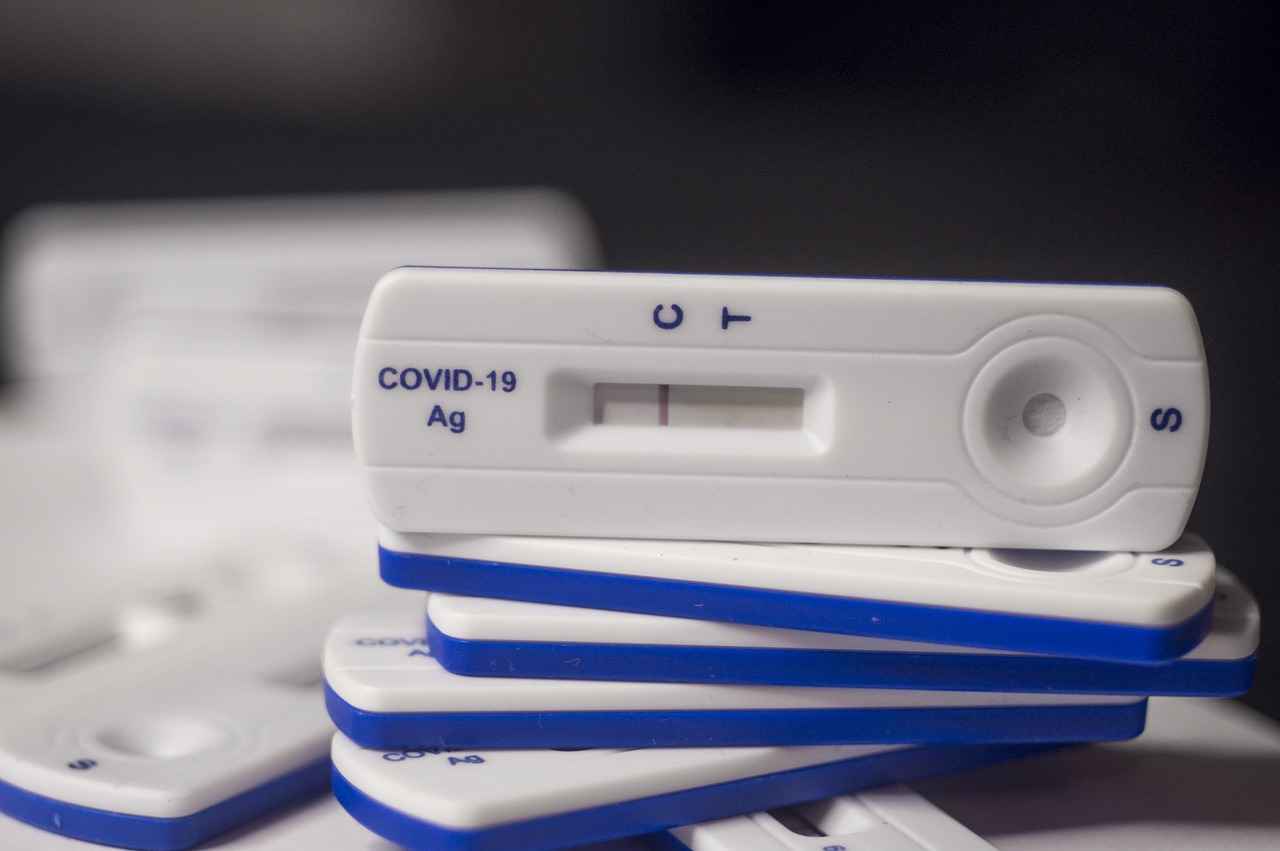
What to Expect During a Fasting Blood Test
Understanding the process of a fasting blood test can significantly reduce any apprehension you may feel about the procedure. This section aims to provide you with a clear picture of what to expect, making your experience as smooth as possible.
When you arrive at the laboratory or healthcare facility, a trained healthcare professional will greet you and guide you through the process. It is important to remember that this procedure is routine and is performed by experienced staff who prioritize your comfort and safety.
The first step typically involves checking your identification and confirming your fasting status. This ensures that the results are accurate and reliable. After this, you will be asked to sit in a comfortable chair, and the healthcare professional will prepare for the blood draw.
Blood Draw Process
- The healthcare professional will clean the area on your arm where the blood will be drawn, usually from the inner elbow.
- A tourniquet may be applied to your upper arm to fill the veins with blood, making them more prominent.
- Once the vein is located, a sterile needle is gently inserted into the vein to collect the blood sample.
The entire procedure is generally quick, lasting only a few minutes. Most patients report that the sensation is minimal—often described as a slight pinch or sting. If you experience any discomfort, it’s important to communicate this with the healthcare professional, who can offer assistance.
Post-Procedure Care
After the blood has been drawn, the needle will be removed, and a small bandage will be applied to the puncture site. You may be advised to apply pressure for a minute or two to minimize any potential bruising. It’s common to feel a bit lightheaded, so sitting for a few moments afterward can be beneficial.
Once you feel ready, you can resume normal activities, but it’s advisable to hydrate and eat a balanced meal afterward to replenish your energy levels after fasting. If you have any concerns or unusual symptoms following the test, don’t hesitate to reach out to your healthcare provider.
Why Preparation Matters
Being well-prepared for your fasting blood test can make a significant difference in your experience. Knowing what to expect helps alleviate anxiety and allows you to focus on your health. If you have any specific questions about the test, it’s always best to consult with your healthcare provider beforehand.
In summary, a fasting blood test is a straightforward procedure that plays a crucial role in monitoring your health. Understanding the steps involved can help you approach the test with confidence and ease.
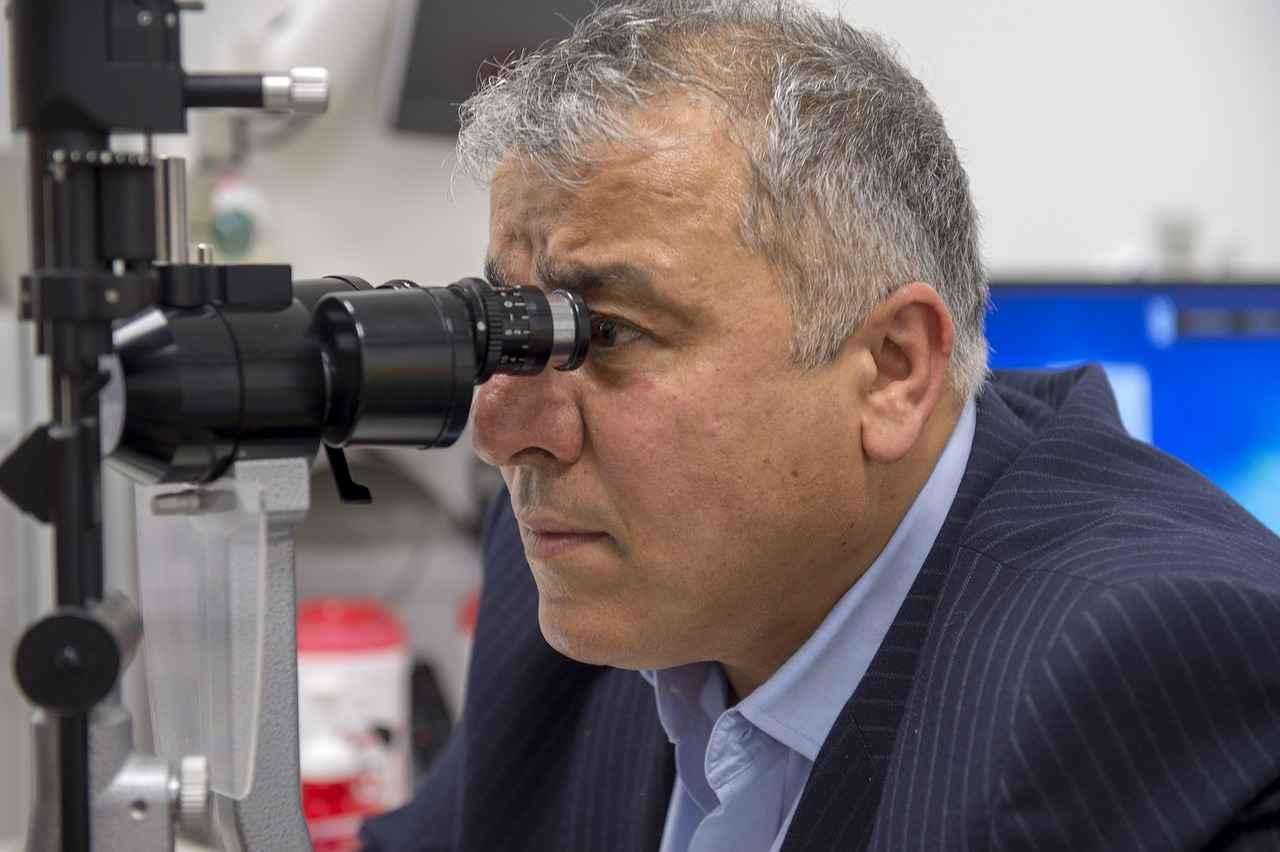
Post-Test Recommendations
After undergoing a fasting blood test, it is essential to prioritize hydration and consume a balanced meal. This practice is crucial for replenishing nutrients and restoring energy levels that may have dipped during the fasting period.
During the fasting phase, your body has been deprived of essential nutrients and hydration, which can lead to feelings of fatigue or dizziness. To counteract these effects, it’s advisable to drink plenty of water immediately following the test. Hydration helps in flushing out toxins and aids in the recovery process.
In addition to drinking water, eating a nutrient-rich meal post-test is vital. A well-balanced meal should ideally include:
- Proteins: Foods like eggs, chicken, or legumes help repair tissues and maintain muscle mass.
- Carbohydrates: Whole grains, fruits, and vegetables provide the necessary energy to restore blood sugar levels.
- Healthy Fats: Incorporating avocados, nuts, or olive oil can help in nutrient absorption and provide sustained energy.
It is important to avoid heavy or greasy foods immediately after the test, as they can lead to digestive discomfort and may not provide the necessary nutrients your body craves post-fasting. Instead, aim for a meal that is easy on the stomach yet fulfilling.
Furthermore, consider the timing of your post-test meal. Ideally, you should eat within 30 minutes to an hour after the blood draw. This timeframe is crucial for optimal recovery and helps in stabilizing your blood sugar levels, which may have fluctuated due to fasting.
In some cases, if you feel particularly weak or lightheaded after the test, consuming a small snack, such as a piece of fruit or a handful of nuts, can provide immediate relief until you are able to have a full meal.
Lastly, it’s important to listen to your body. If you experience any unusual symptoms after the test, such as excessive dizziness or prolonged fatigue, do not hesitate to reach out to your healthcare provider for advice.
In summary, the period following a fasting blood test is crucial for recovery. By focusing on hydration and consuming a balanced meal, you can effectively replenish lost nutrients and maintain your energy levels. This simple yet effective strategy will not only aid in your recovery but also set a positive tone for your overall health.
Frequently Asked Questions
- Can I drink water before my fasting blood test?
Yes, you can drink water before a fasting blood test. Staying hydrated is actually encouraged as it can make the blood draw easier and more comfortable.
- What happens if I drink something other than water?
Drinking beverages like coffee, tea, or juice can interfere with your test results, leading to inaccurate readings. It’s best to stick to plain water.
- How much water should I drink before the test?
While it’s generally fine to drink water freely, moderation is key. Avoid excessive amounts that could cause discomfort or frequent bathroom breaks.
- When should I stop drinking water before the test?
It’s advisable to stop drinking water a few hours before the test if your healthcare provider has given specific instructions. Always follow their guidance.
- Are there any myths about fasting blood tests?
Yes, a common myth is that any liquid can be consumed before a fasting blood test. It’s important to clarify these misconceptions for proper preparation.
